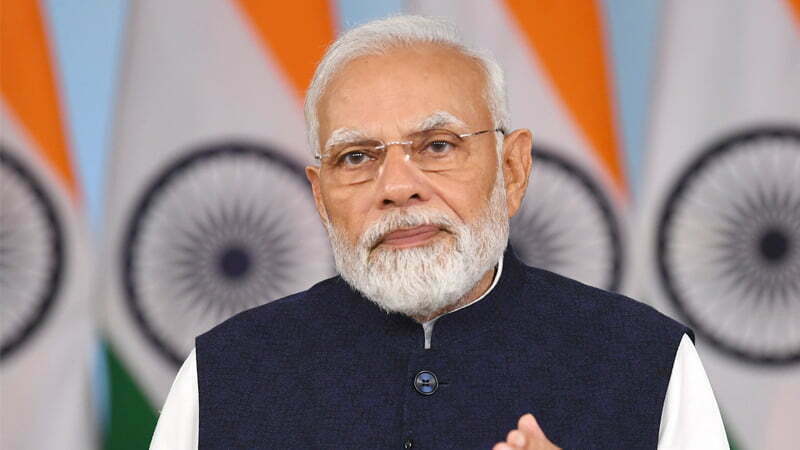Emphasis on a “inclusive agenda”: Prime Minister Modi’s address to the G20 finance ministers.

Prime Minister Narendra Modi on Friday encouraged G20 finance ministers to focus on a “inclusive agenda” and the most vulnerable inhabitants of the globe as the first ministerial conference of the world’s major economies got began in Bengaluru under the shadow of the Ukraine war.
On the first anniversary of Russia’s invasion of Ukraine, the G20 finance ministers and central bank governors (FMCBG) convened for a two-day meeting.
The Indian side has attempted to keep the G20 presidency focused on the economic and geopolitical impact of the war, particularly on the Global South, while seeking to bridge disagreements within the grouping on the Ukraine situation.
In his remarks to the FMCBG conference in English, the prime minister made no direct reference to the Ukraine conflict, although he acknowledged the problems facing finance ministers as well as “severe economic concerns” facing the world.
READ | A gavel, a decisive occasion, and a steady leader to guide us through our G20 presidency
“Your meeting is the first ministerial-level conversation under India’s G20 presidency. Even while I extend my best wishes for a fruitful meeting, I am aware of the difficulties you face. “You represent global finance and economic leadership at a time when the world is suffering major economic troubles,” he added.
“I would advise that your conversations should focus on the most vulnerable residents of the planet. Only by developing an inclusive agenda will global economic leadership regain the world’s trust. “The theme of our G20 presidency, ‘one world, one family, one future,’ also promotes this inclusive vision,” he continued.
READ | India continues to be a global growth engine, well positioned to lead the G20: IMF
Modi enumerated recent challenges to the global economy – the after-effects of the Covid-19 pandemic, rising geopolitical tensions in different parts of the world, disruptions in global supply chains, and food and energy security – and noted the “financial viability of many countries is threatened by unsustainable debt levels”.
He emphasised that trust in international financial institutions has diminished because they have been hesitant to reform themselves. “It is now up to you – the caretakers of the world’s main economies and monetary systems – to restore global economic stability, confidence, and prosperity. “It’s not an easy task,” he admitted.
READ | G20 news: FM will attend first FMCBG meeting in Bengaluru on February 24-25
Modi asked G20 finance ministers to be inspired by the “vibrancy” of the Indian economy.
“Indian consumers and manufacturers are hopeful and confident about the future,” he continued. We hope that you can spread the same great energy throughout the entire economy.”
Progress on the Sustainable Development Goals (SDGs) has slowed at a time when the world population has surpassed eight billion people, he added, and joint efforts are required to strengthen multilateral development banks to face global concerns such as climate change and high debt levels.
Although alluding to the emergence of technology solutions and digital payments systems amid the pandemic, Modi noted that some advancements in digital finance faced “risks of destabilisation and misuse”. He urged finance ministers to adopt guidelines to limit such hazards.
He praised India’s experiences as an example, particularly the creation of a highly secure, trustworthy, and efficient public digital infrastructure and digital payments eco-system.
“You will have first-hand experience of how Indian customers have embraced digital payments because you are meeting in Bengaluru, India’s technological capital,” he said.
India has developed a new mechanism that allows G20 delegates to use UPI, the country’s digital payment network.
“Examples such as UPI can serve as models for many other countries. We would be delighted to share our expertise with the rest of the world. “And the G20 can serve as a vehicle for this,” he added.



